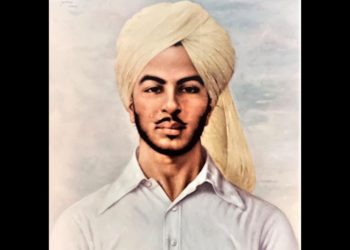
In June 1985, at the height of the skirmishes between police and civilians from both Assam and Nagaland at Merapani along the inter-state boundary, a then-23-year-old Neingulo Krome was detained for 69 days at Jorhat and Golaghat jails in Assam.
Almost 35 years later at Kolkata’s Netaji Subhas Chandra Bose International Airport, Krome went through the same emotions he felt so many years ago.
At around 11 AM on February 5, the Secretary-General of the Naga Peoples’ Movement for Human Rights (NPMHR) had arrived at the airport for his 1 PM Thai Airways flight to Bangkok. With just a piece of check-in baggage, Krome was going through the otherwise mundane process of checking-in at the immigration counter.
“I was initially cleared to go by the immigration officer at the counter but after a while another officer came, took my passport and informed me that there’s an order against me leaving the country,” Krome said from his home in Nagaland’s capital Kohima.
He said that the officer informed him that there’s an order against his travel and his clearance was cancelled.
“I asked who issued the order but the officer said that it showed up in their system and that they were just following orders,” he said.
While he wasn’t accosted, Krome said he was escorted out of the airport and made his way back dejected.
Born at Lasumi village in Nagaland’s Phek district on 14 December 1961, Krome has been a rights activist since the days he was in college.
Having studied at the Baptist English School in Kohima, he joined the economics graduation course at the Kohima College in 1978. It was in his early years in college when he became part of the activism scene in his home state of Nagaland, becoming an active member of the NPMHR in December of 1978, just three months into its inception.
His joining the NPMHR coincided with the observation of the Human Rights Week to commemorate the observation of the adoption of the Universal Declaration of Human Rights.
During his time in college, he would go on to take on an active role in the Naga Students Federation.
After securing his bachelor’s degree, Krome went to the Jawaharlal Nehru University to unsuccessfully seek admission for a master’s degree.
“Those were the days when Indira Gandhi was the prime minister and she was a stern leader,” he said, alleging that several prospective students from the Northeast were denied admission during those days when insurgency and calls for separatism were at its height.
In 1981, he said he was offered admission at the Kohima campus of the Shillong-based North East Hill University by his old professors from Kohima College but he refused to take them up on their offer.
“I said ‘enough’. I had been embarrassed enough already and did not want any more Indian education,” he told me.
Krome’s wife retired from her state government job last year and his four children have either graduated or are currently studying. He said that his years of involvement with civil society organisations have definitely put his family through difficult times.
“But together we’ve pushed through those difficult times,” he said.
He is unsure about the reason why he was not permitted to board his flight to Bangkok but news of the incident drew criticism from other parts of India.
A joint statement issued by various activists based outside the region condemned the action.
“We are certain that by not allowing the leader of one of India’s oldest human rights organisations to travel abroad, the Government of India has made yet another statement about their intolerance and arrogance,” the statement signed by Medha Patkar of the Narmada Bachao Andolan & National Alliance of People's Movements (NAPM) and former member of the Planning Commission, Syeda Hameed, said.
The statement said that the move was an “open attack on the Naga people’s rights” and that the “insult to dignity and denial of travel rights for the NPMHR leader is yet another sign of Government of India’s disrespect towards and backtracking from the ceasefire and the (Naga) framework agreement”.
Calling it a “witch hunt”, the activists said that “the Government of India, while battling without an escape route in the siege in Jammu & Kashmir, is opening another war front in the Northeast region”.
Thanking his peers, Krome said that he a possible reason he was not allowed to board his flight was because his organisation has not given up the Naga issue.
In the years since the first time he was detained in 1985, Krome said that he has been subjected to harassment from the Indian security forces on several occasions in the past when they would enter his house, question him, and even frisk him.
Now, almost 60 years old, Krome said he had hoped such things had come to an end.
“It certainly brought back bad memories,” he said.
Meanwhile in New Delhi concerned citizens and organisation have issued a statement condemning the action. “We are certain that by not allowing the leader of one of India’s oldest human rights organisation to travel abroad , GoI has made yet another statement of intolerance and arrogance.” The statement is signed by Medha Ptkar, Syeda Hameed, Tapan Bose, ASruna Roy, Sandeep Pandey, Dunu Roy, John Dayal, amongst many other citizens and organisations.




